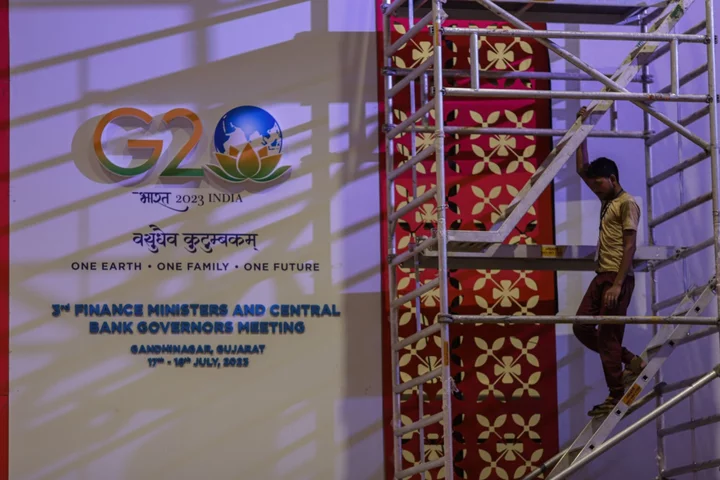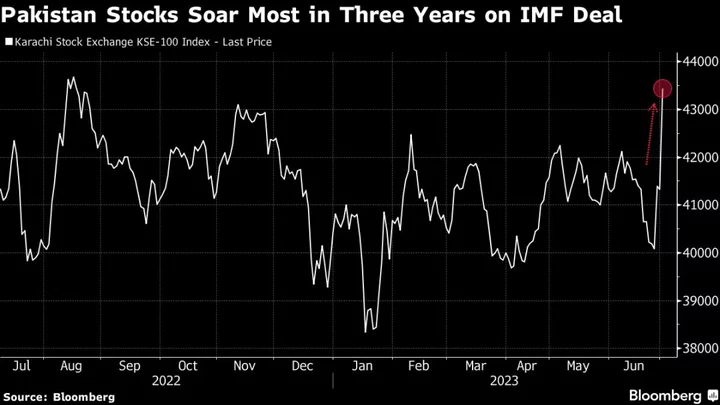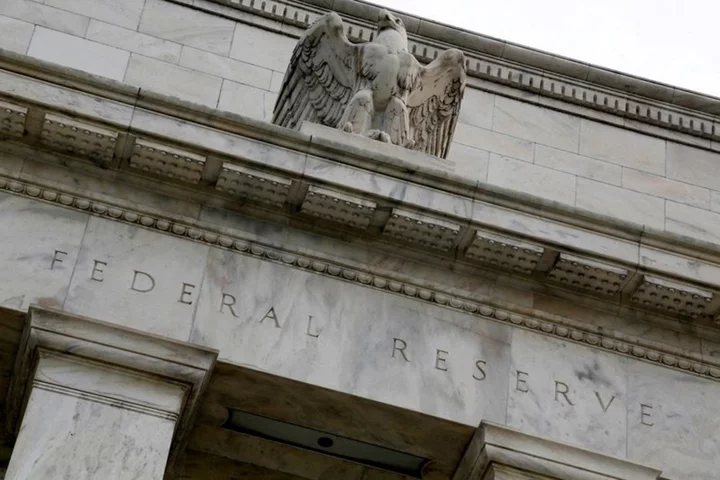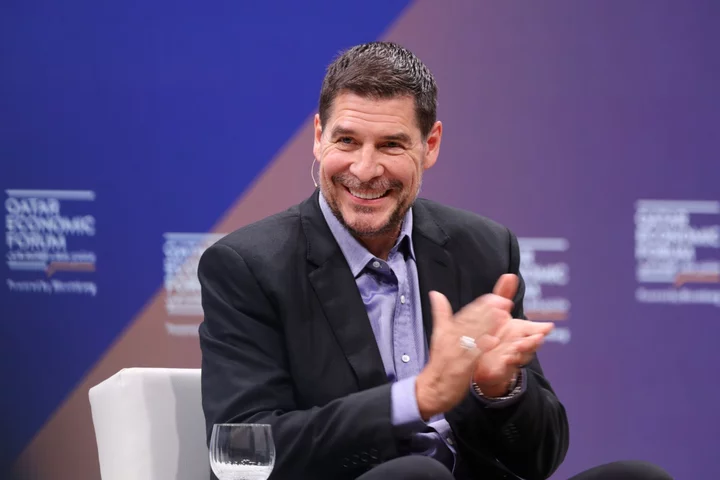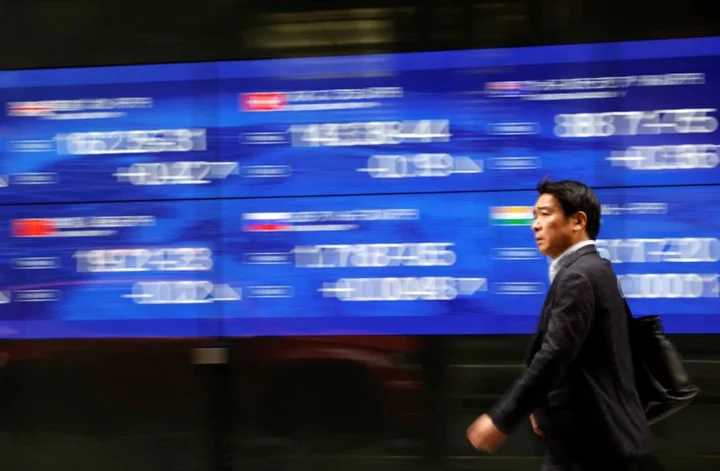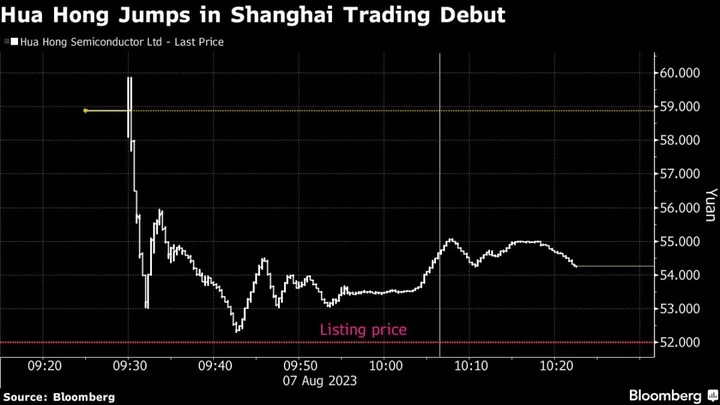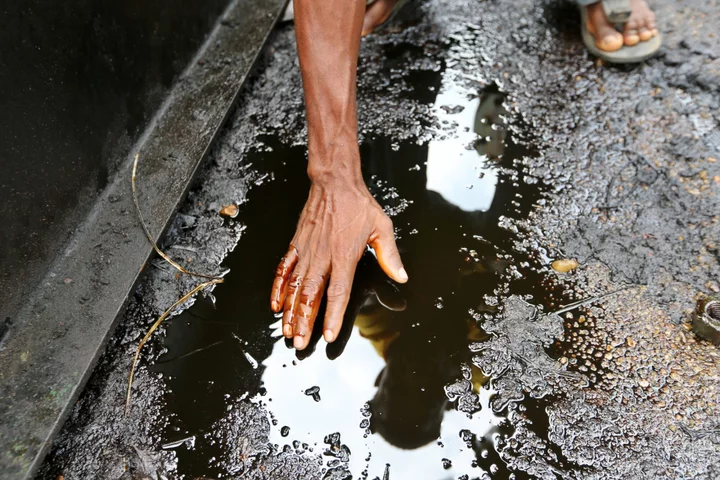Finance chiefs from an assembly of the world’s biggest advanced and emerging economies failed to reach a consensus over a framework that could be applied to restructuring the debt of distressed poorer nations.
Representatives of Group of 20 nations had “very intense discussions on global debt vulnerabilities” during a two-day confab in Gandhinagar, India, according to Indian Finance Minister Nirmala Sitharaman.
She said in a press conference wrapping up the negotiations Tuesday that the debt issue remains a “priority” area for the G-20 this year, with leaders scheduled to gather at a September summit.
The US entered the talks seeking a baseline deal on three elements of last month’s debt-relief framework for Zambia being applied to other cases. One key point: multilateral development banks not being required to take haircuts on loans. But China, the world’s top official lender to developing nations, has pushed back against that long-standing precedent.
Chinese Finance Minister Liu Kun told the group that multinational creditors should be pushed to participate in debt-relief efforts, under a principle of joint action and a fair burden, according to a Chinese government statement.
US Treasury Secretary Janet Yellen said, “We have made some progress with the Chinese.” Speaking in an interview before departing India Tuesday, she said “they did go along with Zambia, and they were more cooperative in the case of Ghana and Sri Lanka.”
Still, “I understand the Chinese have been quite difficult about the communique in the area of debt relief,” Yellen said.
The G-20 finance chiefs failed to reach consensus on a communique, as has been the case since meetings stretching back to February 2022, on the eve of Russia’s invasion of Ukraine.
G-20 members continue to have no common language on the Ukraine war, Sitharaman said. Still, the Gandhinagar talks produced an “outcome document” and “chair summary.” A chair statement has sometimes been used to summarize the talks, in lieu of a communique.
Russia’s announcement of an end to its grain-export deal with Ukraine — which allowed the safe passage of Ukrainian grain through the Black Sea — proved another flashpoint in the G-20 talks. Russia is a member of the group.
“Today several members condemned it, saying this shouldn’t have happened,” Sitharaman said.
Nuclear Language
The “outcome document” noted that China viewed the meeting as not the “right forum” to discuss geopolitical issues. It also noted that Russia “dissociated itself” with comments including a call to uphold United Nations humanitarian principles and a declaration that “the use or threat of use of nuclear weapons is inadmissible.”
As for debt relief, the US side was also seeking agreement that future debt-relief deals feature all bilateral creditors participating in the same deal — with no separate negotiations. It also wants debt-sustainability analysis from the IMF and World Bank to be used to determine a sustainable debt load.
“The debt restructuring process still needs to be speedier and more effective,” International Monetary Fund Managing Director Kristalina Georgieva told the G-20. “The costs of delays in reaching agreement on needed debt treatments are borne acutely by borrower countries and their people, who are least able to bear this burden.”
G-20 policymakers continued to engage on whether and how to ramp up the lending capacity of multilateral development banks such as the World Bank. That lender’s president, Ajay Banga, released a number of proposed mechanisms to leverage the institution’s AAA credit rating, without any specific endorsement.
Banga’s Hopes
“I don’t yet know how much money it will unlock because it depends how much people are willing to put into it,” Banga said on Bloomberg Television Tuesday.
Sitharaman said that the G-20 endorsed a “roadmap” for eventually unlocking “more lending resources in the MDBs.” She indicated further developments were pending ahead of the group’s summit later this year.
(Updates to note chair summary statement, starting in second paragraph after ‘more highlights’ box.)

